Dorset Downys
The change of weather was ideal for a planned day out with a friend of mine, Dave Clay, who was taking a short holiday in Swanage and hoped to bag some of our southern specialities. He was keeping his finger’s crossed for some early Adonis Blue butterflies and was rather partial to the Hairy Dragonfly and Downy Emerald – neither of which he’d had the pleasure of seeing before.
We arranged to meet at Higher Hyde Heath, a small but bountiful reserve near Wareham. Last year proved an excellent season for Downy and plenty of my Dorset Flickr buddies have posted some corking shots already this season. If we were going to find them anywhere, then HHH was a good certainty.
We had barely entered the reserve before we were greeted with our first sightings of both Downy and Hairy, patrolling around the upper pond and venturing into the clearing to feed or rest up. The Hairys were particularly uncooperative, and the Downy typically proved hard to pin down.
Around the back of the reserve is a reclaimed industrial hard-standing bordered by trees where I spied another half-a-dozen Downy along the bank. As usual they flew up on approach, but circled and more or less returned to the same spot, often choosing a higher perch than previous.
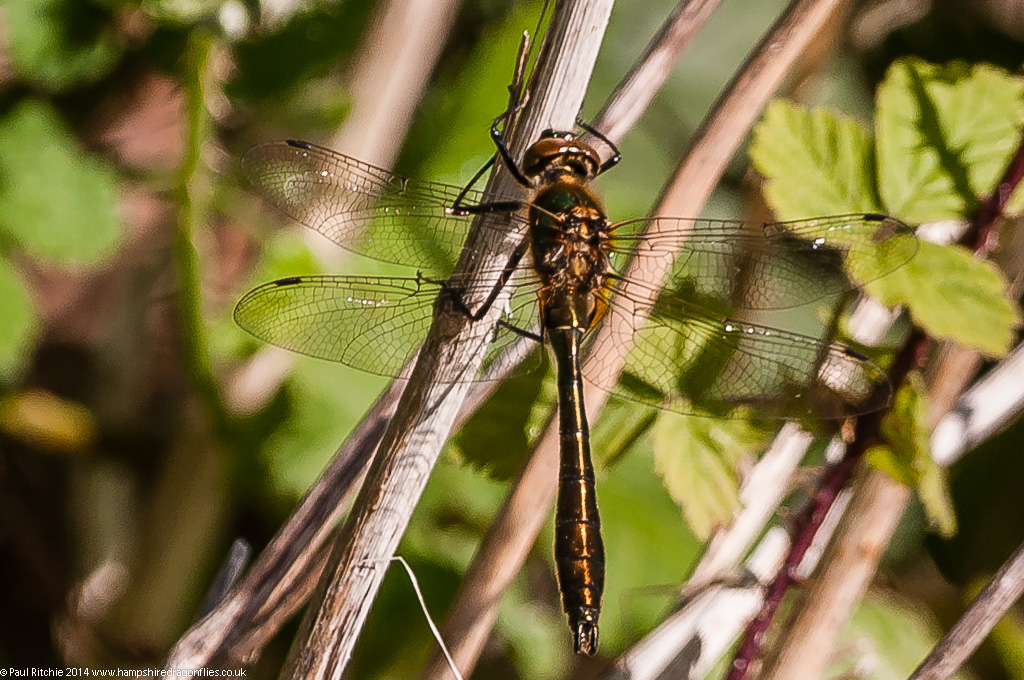
Have I mentioned ‘Dorset Gorse?’ Tougher, spikier and deadlier than its New Forest cousin, and able to find its way into your hair and down your back without any problems if you foolishly attempt to mess with it. But messing with it was worthwhile to grab a better angle on a high-perching female. This involved scaling the bank to gain height and literally wearing the gorse bush.
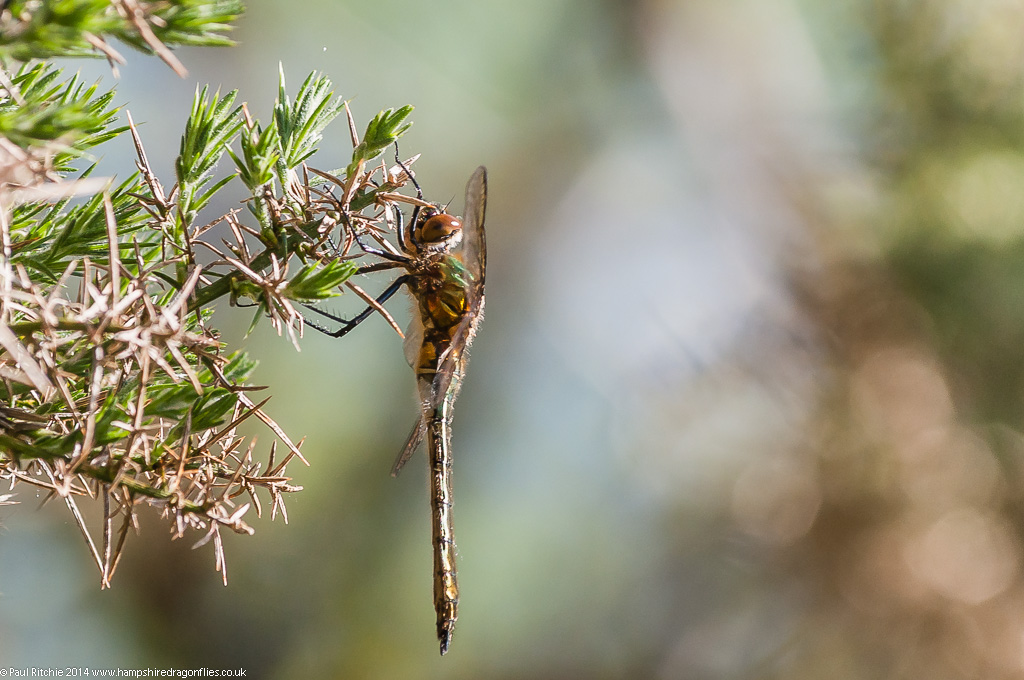
Turned out to be my favourite shot of the day and now I had nailed a decent one I could relax and let the others come to me. After observing and photographing the Sand Lizards, perched on old red roofing tiles or concrete blocks and used to togger interference, we returned to the pond clearing and waited for some more opportunities, but I struggled to grab a better opportunity.
Having had our fill I suggested we call in at Killwood Copse, again a small but productive little reserve tucked away behind the chalk Purbeck Hills. The path inwards usually throw up a few surprises later in the day and season with feeding hawkers, but the small clearing once again provided the bounty with a few male and female Broad-bodied Chasers.
Chasing chasers is all very well early season. Fresh individuals always look shiny and new, but I’ve already started hankering after some adults. This male was the closest I came today with the base of the tail already acquiring pruinescence.
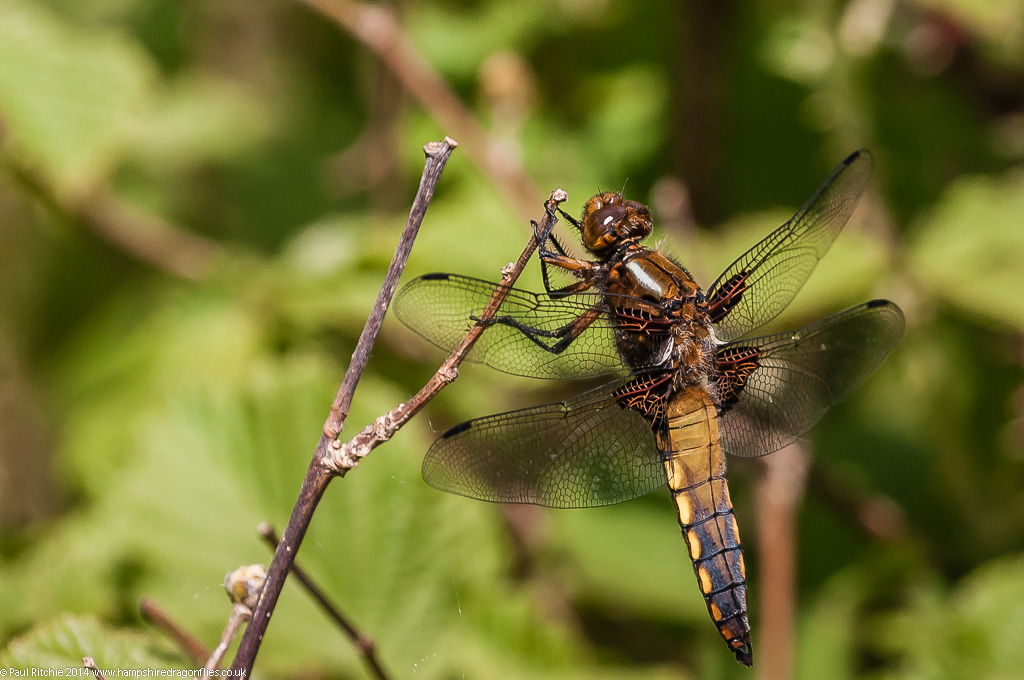
The sight of another Downy caught my attention – I certainly haven’t become either bored or complacent with this species. Any photo opportunity with a Downy is always welcomed.
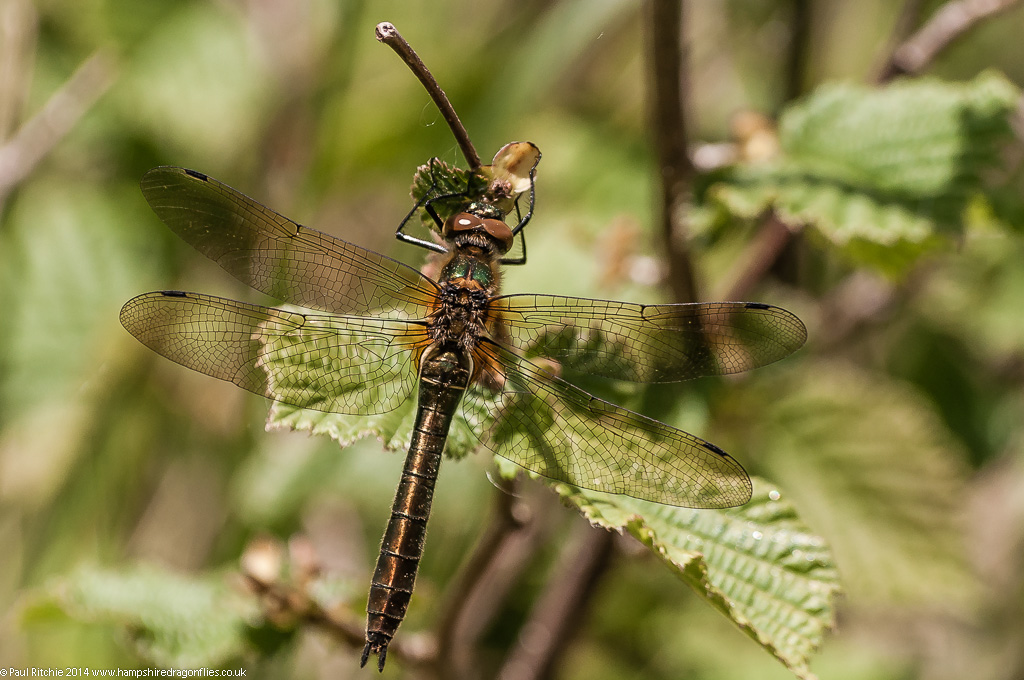
This female didn’t disappear out of sight and after the initial disturbance, settled contently to allow a few different angles.
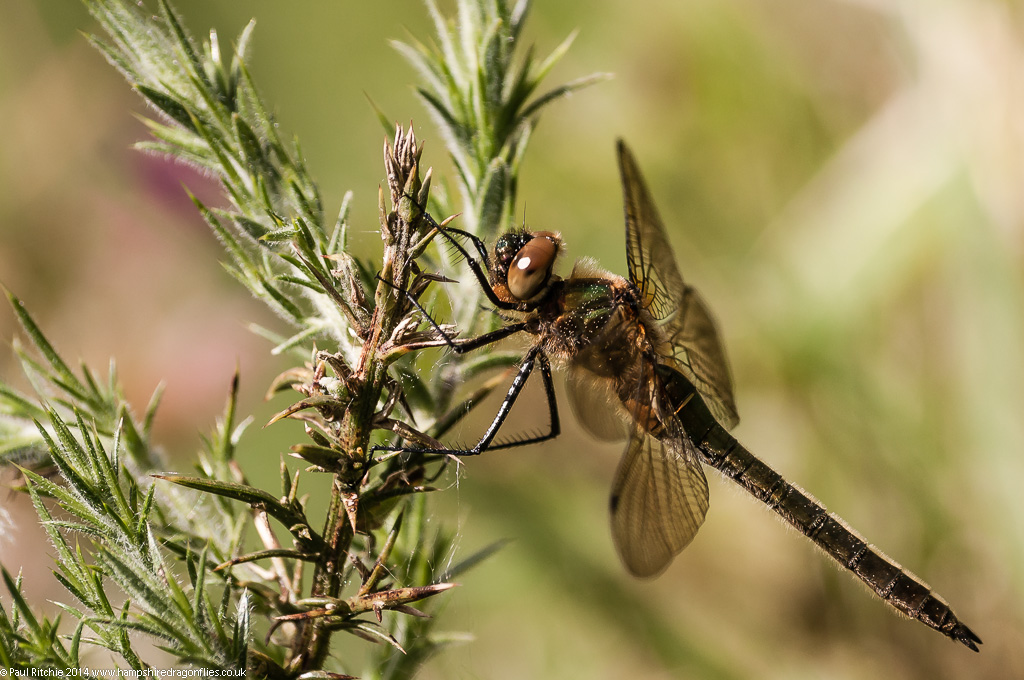
Certainly worthwhile calling in, but that was it for dragonflies as Dave (and I) were eager to find those Adonis. We had been warned that we’re way too early, but having already been sighted in Sussex and the Isle of Wight, I figured we were in with a good chance. And we were. Once again a terrific day in good company with some photos to take home.
Troublefield
On Thursday I took another morning visit to Troublefield, calling in at Ramsdown on the way hoping maybe for a Scarce Chaser. Not to be, and to save you the (and me) anguish I didn’t connect with them at all today. In fact I didn’t see anything at Ramsdowm. Possibly a little too early in the day and the lack of any other insects hinted if any were there they’d be buried right down at ground level.
Troublefield called though, and after such a fabulous day last Friday I had to return to make the most of those enchanted meadows before they were destroyed by grazing. I did meet the ranger later who confirmed the cattle are imminent and due to the wet conditions we will at least get a couple of weeks grace>
To leave the meadow intact until the end of May is all I asked these previous years. Thankfully due in most part to the winter floods and regular rainfall, I’ll get my wish. So if anyone fancies a visit to see what it can be like, get down there before the month is out.
I confess to being a little eager and half-an-hour earlier than my last visit, so I had to wait for things to wake up. Sure enough, just after 10.00am the butterflies took to the wing along with reasonable numbers of Beautiful Demoiselles. If I’m honest not nearly as many as last week, but enough to keep me happy and occupied.
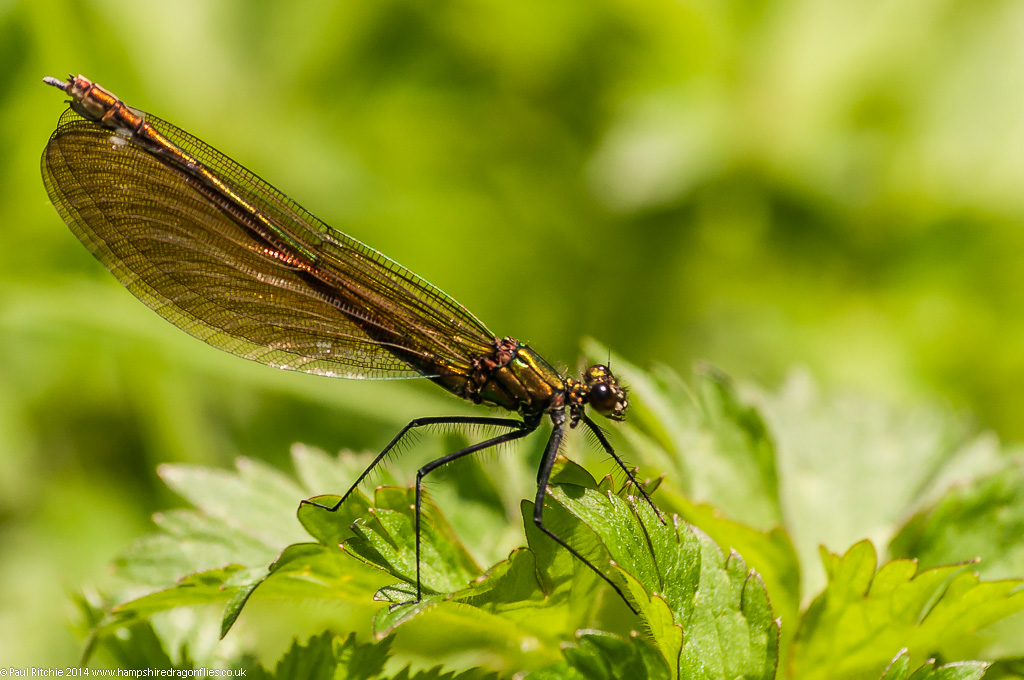
Besides the Beautiful I had several butterflies to keep me company, with Peacock, Green-veined, Orange -tip, Small Copper, a faded Small Tortoiseshell and even a few Brown Argus providing contrasting colour to the shimmering greens of the reeds and grasses and the sparkling citrus glow of meadow buttercup.
About an hour after the Beautifuls had risen they were joined by a good showing of Banded Demoiselle. Always a great pleasure to witness both in the same habitat, they kick-started another frenzy of chase-me as I attempted to pin one down. In my opinion they are far more scatty than their cousins, but their thumbprint markings on the wing add contrast and interest to any photograph.
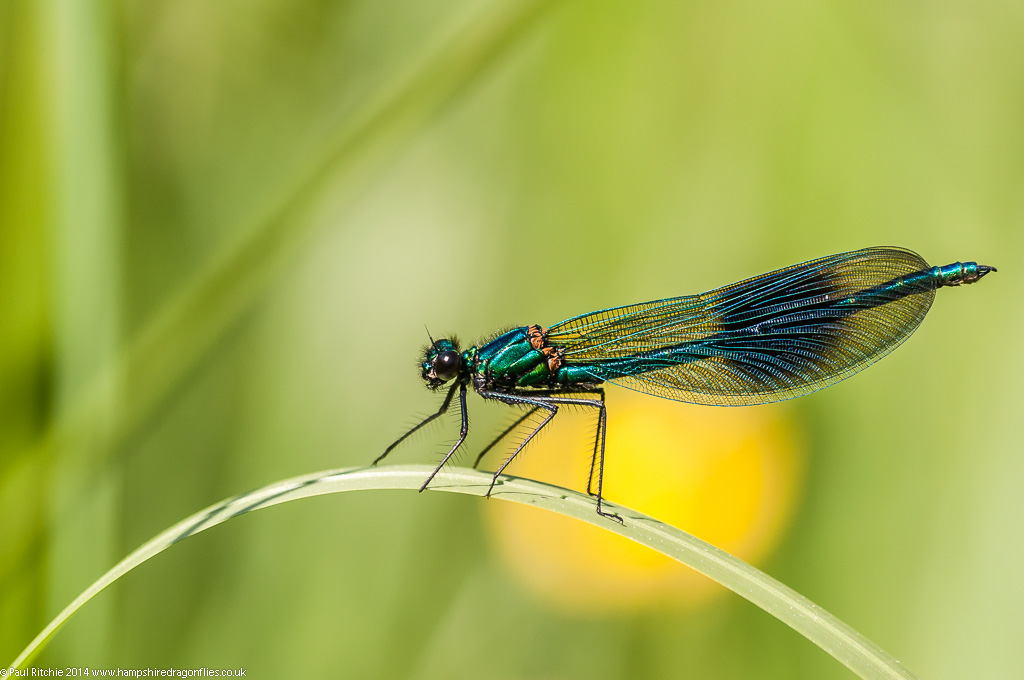
All in all I spent just over two hours in this meadow, repeatedly going back and forth and generally pottering around looking for an agreeable shot. Anywhere which can hold my interest this long has got to be worthwhile. I even had a couple of moments with some stunning, if formidable-looking Hornets.
After the repeated delights of the northern meadow, the southern meadows disappointed with scattered showings but nothing substantial, and had it not been for time running out I’d have probably camped down in the meadow for the rest of the afternoon…
